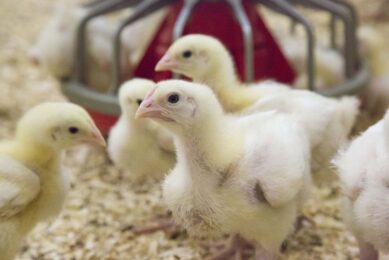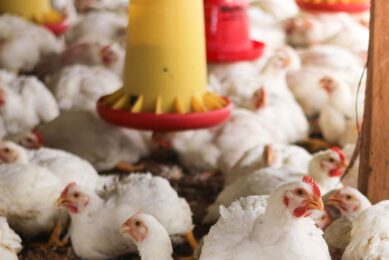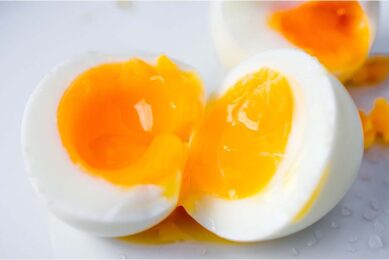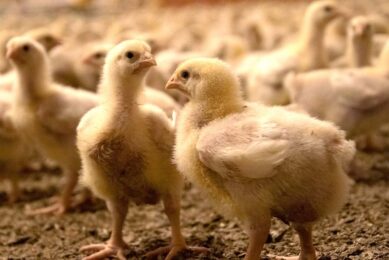Heat stress and feeding strategies in meat-type chickens
Heat stress can induce hyperthermia in poultry. A reduction in heat load can be achieved by increasing the possibilities for dissipation, decreasing the level of heat production or by changing the thermal production pattern within a day.
Strategies to reduce the negative effects of heat stress can be based on a specific feeding strategy, such as restricted feeding. Feed that is offered long enough before a hot period can ameliorate the harmful effects of high temperature. Another strategy may be to use choice feeding from different feed ingredients, rich in protein or in energy.
With such self-selection, the chicken may adjust its intake of individual components, allowing the bird to optimise the heat load associated with the metabolism of the ingested nutrients. Additional promising strategies involve offering a choice between feeds with a different feed particle size or structure. A large particle size contributes to the development of the gastro-intestinal tract (GIT), especially the gizzard and the caeca. A large gizzard will maximize the grinding process and potentially ease digestion down the GIT, thereby reducing heat production associated with digestive processing.
Also wet feeding may be profitable under heat stress conditions as well. Feeding wet diets may facilitate an increased water intake and larger particle sizes can limit water excretion in droppings, resulting in more water being available for evaporation during panting, hence cooling the bird. In conclusion, these feeding strategies may help to reduce heat production peaks, facilitate evaporative activity and/or decreases the heat load, resulting in beneficial effects on performance and health of the bird kept in more tropical areas worldwide.
Purchase report options:
- Purchase this report from Cambridge Journals
- Subscribe to WPSA journal (already a WPSA member)
- Become a WPSA member (word file) (pdf file)
Join 31,000+ subscribers
Subscribe to our newsletter to stay updated about all the need-to-know content in the poultry sector, three times a week. Beheer
Beheer








 WP Admin
WP Admin  Bewerk bericht
Bewerk bericht